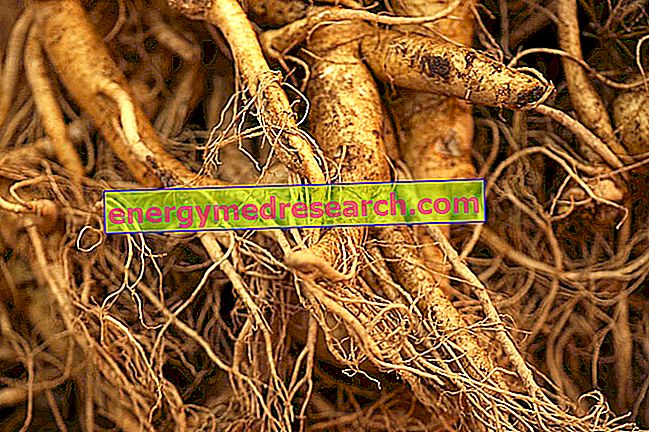
Inflammation is a physiological response to various stimuli such as pathogens, irritants and tissue injuries, and can be classified as acute or chronic.
An acute inflammatory response has a rapid onset and a short duration, and is characterized by a rapid movement of plasma proteins and leukocytes towards damaged tissues. Even if the acute response is an attempt to protect or start the healing process, when it is excessive it can lead to pathological consequences.
Chronic inflammatory responses can cause significant tissue damage and develop autoimmune diseases.
Ginseng has been shown to reduce the production of pro-inflammatory cytokines and thus to improve the symptoms and progression of inflammatory diseases.
In hypersensitive mice with induced asthma, ginseng effectively suppresses airway hyper-reactivity. This anti-asthmatic effect was confirmed by Babayigit et al., Which showed improvement in the histopathological changes of the lung in ginseng-treated asthmatic mice. Lim et al. have shown that Ginsan administration has an effect equivalent to that of dexamethasone (steroid-like anti-inflammatory drug).
Ginseng can also protect against bacterial septic responses by suppressing acute inflammation. As previously described for the cytokines of innate immunity, Ginsan and other polysaccharides suppress acute inflammation and protect mice infected with death from bacterial sepsis.
It is interesting to note that although studies have shown anti-septic effects towards S. aureus, the production of cytokines should cause some quite different effects. For example, Ginsan decreases the secretion of inflammatory cytokines such as IL-1 beta, IL-6, IFN-gamma, IL-12 and IL-18, but polysaccharides increase IL-1 and IL-6 levels. Overall, the anti-septic protective effects of ginseng seem to be attributed to better phagocytic activity of monocytes and macrophages, rather than to reduced synthesis of inflammatory cytokines.
Furthermore, ginseng has beneficial effects on cerebral ischemia by modulating inflammation of the central nervous system. These results propose the application of ginseng as a neuro-protective agent in the prevention and / or treatment of neuro-inflammatory diseases such as cerebral ischemia.
In collagen-induced arthritis of rats, ginseng and various extracts showed anti-arthritic effects. The rats show a reduced inflammatory infiltration of the tissues, a lower production of cytokines and a slowing of cartilage destruction, improving the clinical score on arthritis.
Taken together, the findings suggest that ginseng can be used as a supplement or alternative product to current anti-TNF-alpha therapies for rheumatoid arthritis or other inflammatory diseases characterized by excessive TNF-alpha production.
Many other experiments have described the effects of ginseng on atopic dermatitis. Korean red ginseng extract has been shown to suppress the production of TNF-alpha and IL-8 in human keratinocytes.
Moreover, in mice with atopic dermatitis, the superficial application of ginseng extract or ginsenoside Rb1 significantly improved skin lesions and pruritus, decreasing serum IgE, IL-4 and IL-10. This anti dermatitic effect was also observed in mice that took the active ingredient orally and was further confirmed in the human study.



